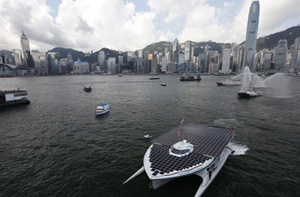BEIJING - China's top banking regulator has said that local government debt risks are "under control" and efforts to ease them are "going smoothly."
Liu Mingkang, chairman of the China Banking Regulatory Commission (CBRC), was quoted as saying in an interview published in the Wednesday edition of the People's Daily that the CBRC has been closely monitoring China's local financing vehicles and working with local governments to help them manage their debts.
Local government debt totaled 10.72 trillion yuan ($1.66 trillion) at the end of 2010, the National Audit Office announced in June.
Efforts to overhaul existing local financing vehicle loans and reduce debt risks have been "progressing in an orderly fashion," Liu said.
Banks have been ordered to refrain from providing loans to local governments for unapproved projects and vehicles and to tighten credit management in order to prevent debt increases, he said.
Liu said property loan risk is also controllable, as banks have enhanced their credit risk control, especially for speculative developers.
Liu also called for banks to step up their prevention of risk associated with shadow banking, which has expanded amid tightening liquidity this year.
Shadow banks are non-banking financial institutions that function like commercial banks. These institutions include insurers, mutual funds and private equity funds.
The CBRC will strictly examine all financing products promoted by commercial banks to ensure that risk from these products will not extend into the banking system, Liu said.
The CBRC is ordering banks to establish "firewalls" to avoid risk from online loans, private lending and small-loan companies while working with other government departments to improve their supervision of high-risk sectors, Liu said.
Liu also said that the weakening of global financial system has brought "challenges and uncertainties" to China's economy, as pressures from external demand and rising inflation are still hindering the country's economic development.













